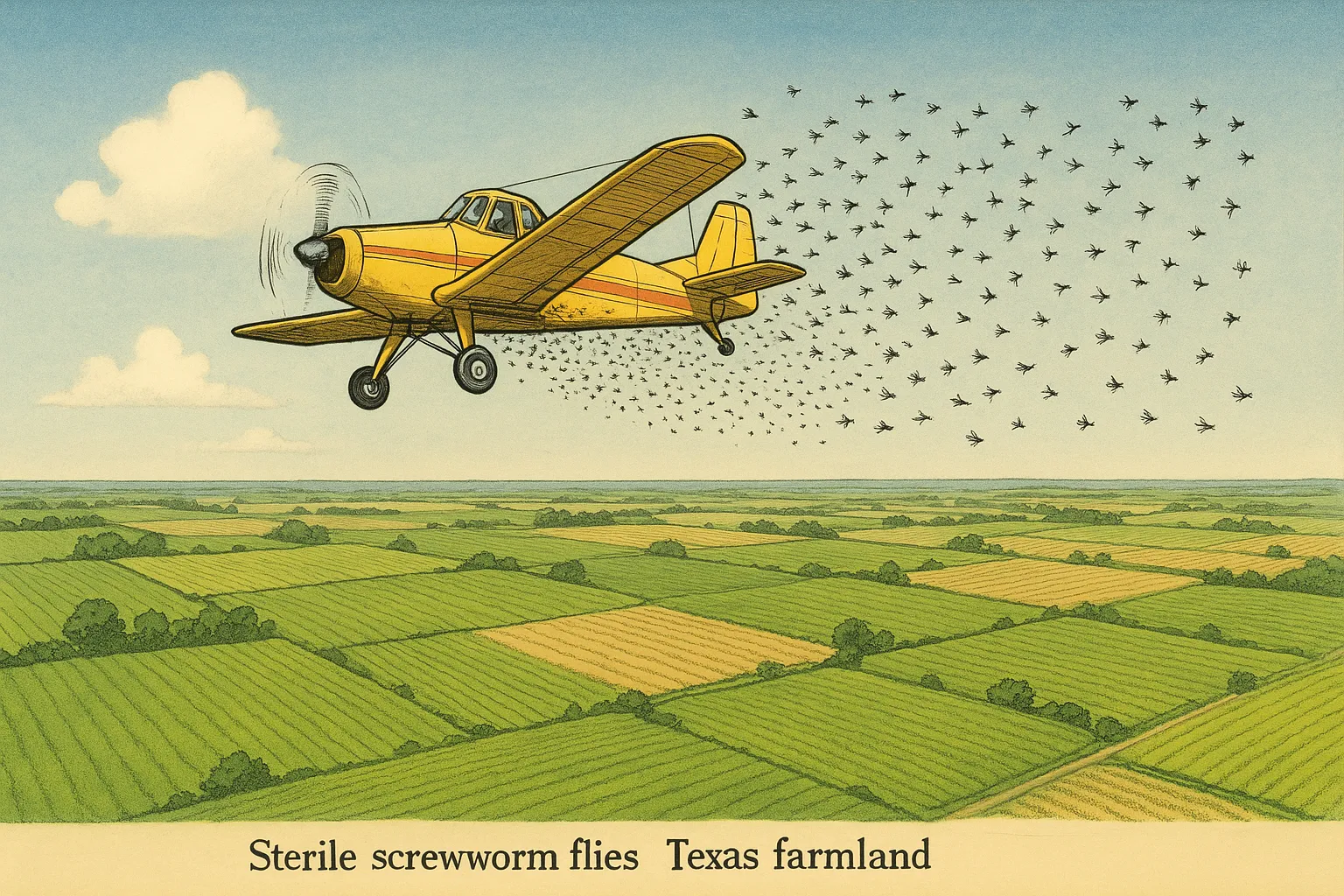New Human Screwworm Case Confirmed in Maryland as Outbreak Advances North

August 25, 2025 - A new human case of the flesh-eating New World screwworm parasite was confirmed in Maryland yesterday, marking the first U.S. infection this year and underscoring accelerating spread from Central America into the United States.
Authorities traced the infection to a Maryland resident who had recently traveled from Guatemala. The U.S. Centers for Disease Control and Prevention validated the diagnosis on August 20, according to industry and state veterinary sources. The patient received prompt treatment and is reported to be recovering under close medical supervision.
Meanwhile, U.S. Department of Agriculture (USDA) officials are racing to bolster defenses along the southern border. Last week, Agriculture Secretary Brooke L. Rollins unveiled plans for a $750 million sterile-fly production facility in Texas designed to release 300 million sterilized screwworm flies weekly-a proven method to collapse wild populations by disrupting breeding cycles.
The New World screwworm (Cochliomyia hominivorax) lays eggs in open wounds of warm-blooded animals. Once hatched, larvae burrow into living tissue, consuming flesh and causing lesions that can prove fatal if untreated. Although primarily a threat to livestock and wildlife, human infestations-while rare-demand laborious removal of maggots and intensive wound care.
Central American nations have reported surging human cases in 2025, including 166 in Honduras, 41 in Mexico, and the first-ever case in Belize. Guatemala alone has confirmed 16 infections this year. USDA’s Animal and Plant Health Inspection Service (APHIS) has documented a dramatic rise in screwworm detections across the region, from roughly 25 annual cases in Panama to more than 6,500 in 2023.
In response, USDA suspended Mexican cattle imports in July to prevent further introductions. State veterinarians and mounted border patrol “tick riders” are intensifying surveillance for infested livestock and wildlife. A planned sterile-fly facility in Edinburg, Texas, is expected to come online within two to three years; interim measures include novel trapping technologies and mobilizing additional mounted officers under an $8.5 million dispersal facility at Moore Air Base.
Secretary Rollins emphasized the urgency: “All Americans should be concerned,” she said during the Texas announcement. “This pest threatens our ranching community, food supply and national security.”
With screwworms breaching biological barriers long thought to contain them, agricultural and public health agencies warn that rapid, coordinated action is the only path to preventing a return of a parasite eradicated from the U.S. in the early 1980s.
Categories
Beauty and fashion Business and finance Climate Entertainment Food and drink Games Health Hobbies and leisure Jobs and education Law and government Other Politics Science Shopping Sports Technology Travel and transportationRecent Posts
Tags